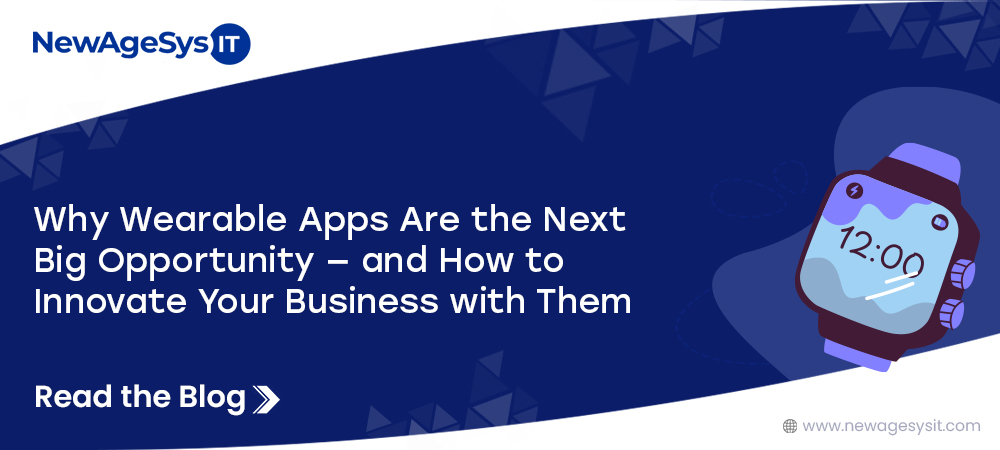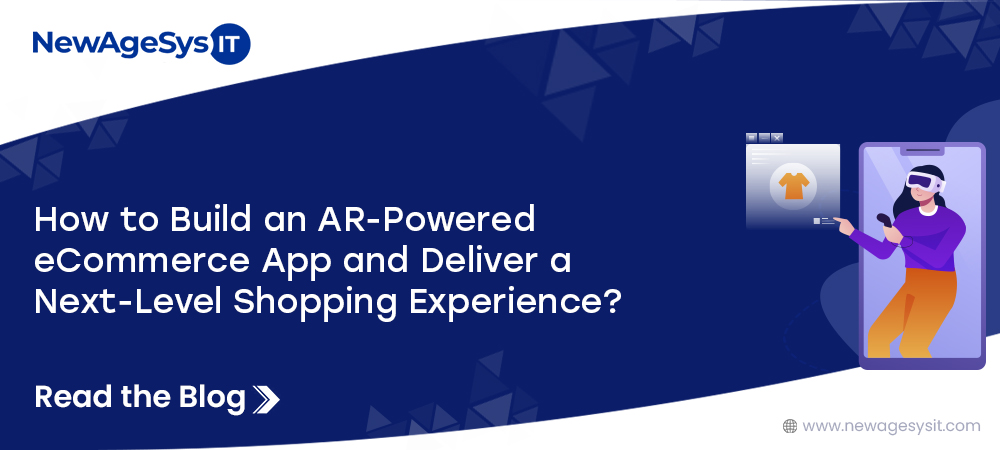A report by Deloitte predicts that by 2025, nearly 25% of organizations using GenAI will deploy AI agents. Also, the report mentions that this data could be doubled by 2027.
Today, GenAI is widely being embraced by IT firms including mobile app development agencies. When it comes to IT organizations, the effects of GenAI on IT services are important.
Keep reading the blog to learn about how GenAI will shape IT services in 2025.
What is GenAI?
Generative Artificial Intelligence, often known as GenAI, creates content, images, texts, videos, and even music, based on the input prompts. GenAI depends on advanced algorithms and deep learning models, wherein such models analyze a large amount of data to identify patterns, and produce output.
When we talk about GenAI, it is more than a fun concept and it is bringing significant changes to various industries, including IT firms and mobile app development companies. For example, developers can use it to write code or design interfaces. It even helps in building apps, chatbots or voice assistants. For app developers, GenAI isn’t just helpful—it’s key to staying competitive.
How Will Gen AI Transform IT Services in 2025?
Improved Automation of Routine Tasks
Repetitive tasks can drain the life out of IT projects. But there’s hope. Generative AI is here to take over the tedious stuff. By 2025, IT Automation with AI will transform IT operations, wherein manual workflows will convert into easy, automated processes. For example, you do not have to deal with endless ticket sorting or data management. Instead, AI tools handle the heavy lifting, saving your time, reducing costs, and keeping things running smoothly.
Automation shines by cutting out repetitive tasks for humans. IT Automation with AI uses generative AI to find patterns in complex data. Take IT Service Management (ITSM) as an example. AI-powered chatbots now sort and route tickets instantly. Initial replies go out in seconds, implying fewer clicks and less stress for your team.
Personalization of User Experience
Consider that you are walking into a store that is designed completely around your unique preferences. Now, imagine such a kind of personalization shaping the future of IT services in 2025. That’s the transformation Generative AI (Gen AI) promises to deliver by 2025. AI-driven IT solutions will adapt to your habits, needs, and behavior patterns. These solutions will help in predicting what you need before you even ask.
For instance, imagine logging into an AI-driven helpdesk. It greets you by name, identifies your issue instantly, and offers personalized solutions. This process will make tech support smooth and stress-free. Advanced chatbots will also play a huge role in this transformation. They’ll go beyond giving cold, mechanical responses. Instead, these bots will hold natural conversations that feel empathetic and human. Rather than a basic Q&A session, they’ll act like friendly advisors who genuinely care about solving your problem.
Proactive Incident Management
In 2025, your IT team will no longer have to deal with firefighting system failures. Instead, they’re predicting and solving issues before they disrupt operations. This is the power of Proactive Incident Management, powered by Generative AI. It will constantly monitor patterns, study behaviors, and detect anomalies within IT systems. This isn’t magic—it’s advanced algorithms transforming raw data into actionable insights.
Generative AI identifies odd patterns or performance changes and warns teams early. Imagine knowing about a server slowdown or security risk hours before it becomes a crisis. This shift speeds up IT responses and also improves reliability. Systems run smoothly, downtime shrinks, and user frustrations decrease. Proactive problem-solving becomes second nature, almost invisible, to those depending on IT systems.
Intelligent Decision Support Systems
By 2025, IT services could experience a transformative shift through Intelligent Decision Support Systems (IDSS). These systems, powered by Generative AI, are designed to change the way IT operations function. IDSS analyzes vast data, identifying trends and generating actionable solutions for teams. It helps IT professionals to address issues quickly and make data-driven decisions confidently. Whether fixing bugs or optimizing system performance, IDSS removes uncertainty from IT processes.
By automating repetitive tasks, it lets IT teams focus on strategic innovation and complex challenges. Automation redefines roles, giving professionals time to create and solve problems effectively. That’s the power of IT automation with AI, with IDSS leading the way. The result is smarter, faster, and more efficient IT services overall. With IDSS, IT becomes more agile, smarter, and ready to meet the demands of tomorrow’s digital world.
Evolution of IT Workforce Roles
Generative AI (Gen AI) will transform IT workforce roles significantly in 2025. AI automation will handle repetitive tasks and improve decision-making processes effectively. Traditional roles, like data scientists and system administrators, will evolve dynamically. Also, tasks such as data analysis and system monitoring will lean on AI tools. These tools process massive datasets faster and more precisely than humans. This shift lets IT professionals focus on strategic priorities like AI governance and ethics.
New roles will also emerge, including AI ethics officers and AI model trainers. Integration specialists will align AI functionalities with organizational goals seamlessly. The important skills in machine learning, cloud computing, and cybersecurity will become crucial. Businesses must invest heavily in upskilling programs to adapt and thrive. Mobile app development agencies will also welcome GenAI to streamline workflows and improve app functionality.
Decentralized AI
Decentralized AI (DeAI) is redesigning IT services, bringing security and efficiency. AI-driven IT solutions are expanding their impact, promising significant changes by 2025. Unlike centralized systems controlled by big companies, DeAI uses blockchain technology. It decentralizes data processing and AI training, keeping data ownership with users, and improving privacy and security while enabling fair rewards for contributors.
Participants earn tokens for sharing resources and expertise in these ecosystems. Federated learning lets DeAI support collaborative AI while meeting strict privacy laws, minimizing vulnerabilities, and preventing single points of failure in IT systems. By integrating with generative AI, DeAI delivers cross-domain insights for businesses. Organizations benefit from this democratized AI, breaking barriers and driving advancements.
Integration of Multimodal AI Models
Multimodal AI will transform IT services in 2025 with smarter systems. These advanced models analyze text, images, audio, and video together without hassles. Customer service will benefit significantly from these innovations. For example, multimodal AI interprets voice tone, textual queries, and visual cues effortlessly, enabling systems to provide human-like responses, increasing satisfaction and efficiency.
In healthcare, multimodal AI revolutionizes diagnostics by combining diverse patient data types. It delivers accurate diagnoses, personalized care, and timely interventions while cutting costs. Generative AI in IT services complements this by automating tasks like troubleshooting and content creation. It builds data-driven insights and simulates real-world scenarios effectively. By 2025, businesses adopting multimodal and generative AI will lead innovation.
Ethical Considerations and Governance
Ethics and governance are essential for Generative AI’s evolution in IT services. With AI adoption accelerating toward 2025, ethical considerations are becoming critical. Generative AI can increase innovation but raises concerns about privacy and fairness. Organizations must address these issues with strong, actionable ethical frameworks in place. Governance systems must ensure AI aligns with values and meets regulations.
Transparency tools can explain AI decisions, improving trust among stakeholders. Having clear accountability measures ensures responsibility for outcomes and prevents misuse. To succeed, organizations need collaboration across diverse teams and disciplines. It can mitigate risks and create inclusive, fair AI systems. With thoughtful action, IT services can responsibly maximize AI’s transformative potential.
Final Thoughts…
The influence of Generative AI in IT services is set to redefine 2025. Companies will adopt GenAI widely, automating repetitive tasks with precision. Intelligent chatbots will transform customer support, ensuring faster and more personalized service. Predictive analytics powered by GenAI will anticipate problems and resolve them proactively. However, achieving this transformation requires a clear strategy and careful execution. Success depends on aligning GenAI applications with the unique needs of each business.
NewAgeSysIT leads this revolution, using Generative AI in IT services to transform businesses. With expertise in IT consulting, cybersecurity, cloud services, and development, we deliver cutting-edge solutions. By embedding AI insights into consulting, we help companies to make faster, smarter decisions.
If you’re ready to enjoy the benefits of GenAI, NewAgeSysIT is your reliable partner. Contact us today to explore how our solutions can solve your challenges and deliver success.








